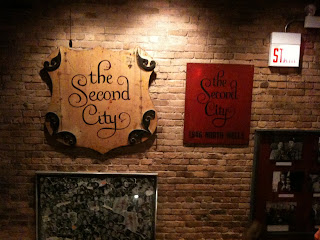For my second reflection I want to mix two things Moltmann said. One of them is his beautiful story as a POW as a youth, overwhelmed with grief and shame, and the grace he received at the hands the British.
The second is a quote in reference to the cross, where Moltmann said that there are two crosses in Christianity, the cross of Golgotha and the cross of Constantine's dream. One is about resisting the polity of society for the horizon of hope. The other is based upon a sword, power, and is what we call Christendom.
While I agree that the usurpation of the cross and Christianity by the Romans was a tragedy and since then we have had a very imperial form of Christianity in the West, I think Moltmann's story itself reveals the tragedy and irony between these two crosses. First, we must approach Moltmann's story.
Understanding Moltmann really helps to understand his theology, because instead of a system he is creating reflections and contributions based on his life journey and conversation with those he encounters along the way. Moltmann's theology didn't in his home where he was born into a secularist family reading Goethe and Nietzsche. At 16, Moltmann unwittingly joined the Hitler Youth Movement and went to war, the front lines I believe at age 17.
Moltmann never once fired a shot, but when the opportunity came he surrendered himself to the Ally forces. His life in Germany was surrounded by firestorms, bombings, and death. The question for him became not so much "Where is God," but "Why am I still alive and not dead like the others." Or, "is there any meaning to life?"
As a prisoner in war camps in the UK, Moltmann found that no only was his body, but his very soul was imprisoned. Like I said before, Moltmann had no idea what was happening pertaining to the concentration camps. In prison, pictures were posted in their stalls so as to realize what was happening in Germany under Hitler. Moltmann says his life was almost suffocated with the guilt of his people and nation. Many Germans in POW camps didn't recover hope or the will to live after learning about such shameful acts under Nazi Germany.
There are a mixture of two events that recovered Moltmann's will to life. The first was a blooming cherry blossom tree where he was overwhelmed for the "blooming of life." This gave him some hope for new life. But in the camp, his old affection for Goethe and Schilling waned as he didn't find words for his experience. Rather, his captures treated him with grace. One day a young minister gave him a Bible where he began to read it and found the words for his experience in the Psalms of Lament (esp. Ps. 39) and the words of Christ in Mark, "My God, My God, why have you forsaken me?"
The crucified and forsaken Christ resonated with Moltmann. "Christ found me in the dark pit of my soul," forsaken behind the barbed wire of the camp. Moltmann was later given more grace upon grace by his captors, being transferred to a YMCA camp, trained in Greek and Hebrew while a prisoner, and read his first theological book: the Nature and Destiny of Man by Niebuhr.
So here's the amazing part of this entire story. 10 years after the war, Moltmann and some others returned to their place of imprisonment to the astonishment of the British. Who goes back to their place of imprisonment, especially during a time of war? For Moltmann and many others, they received so much grace at the hand of their captures, that grace was their salvation. They returned because of the amazing gift of grace they received while imprisoned.
Of course in reference to this gift of grace at the hands of the British soldiers..."the enemy, Moltmann quipped prompted by a question that he cannot understand the atrocities of the US prison camps like Abu Grahb, etc. "It's more convincing to love your enemy than to hate and kill your enemy. so what happened in the prisons in Iraq is outrageous and I cannot understand an administration that allows that to happen.
To give grace is wiser policy than so called enemies."
Now, if you are still following me, here's the point I wanted to make: the irony of Christendom is that grace and God worked and work within it. It has become normative to run from, critique, and vehemently oppose anything attached to Christianity under Christendom. The "holy era" was the first 3 centuries of Christianity, the rest has some bright spots but for the most part is covered in blood and a church co-opted for imperialism.
In no way do I want to defend the Christendom church, but I do think it's important to embrace the ironies here. It was under Christendom Christianity that Nazi Germany and concentration camps happened, but it was also under this same Christianity that British soldiers treated their enemies with so much grace that is was salvation for them, so much so that one of the greatest theologians of our time was born out of their gift. There is no broad and simple divide between Christendom= bad; everything Christian= good. The two bleed into one another and it is not fair to only treat Christian history in light of the imperialism, sword, and death.
Moltmann was saved under the shadow of the cross of Constantine's dream, or was that simply the cross of Golgotha breaking through the dream? What do you think? Is it realistic to bifurcate the cross, imperial Christianity and suffering Christianity? Do they mix like water and oil, or more like milk and chocolate?



















